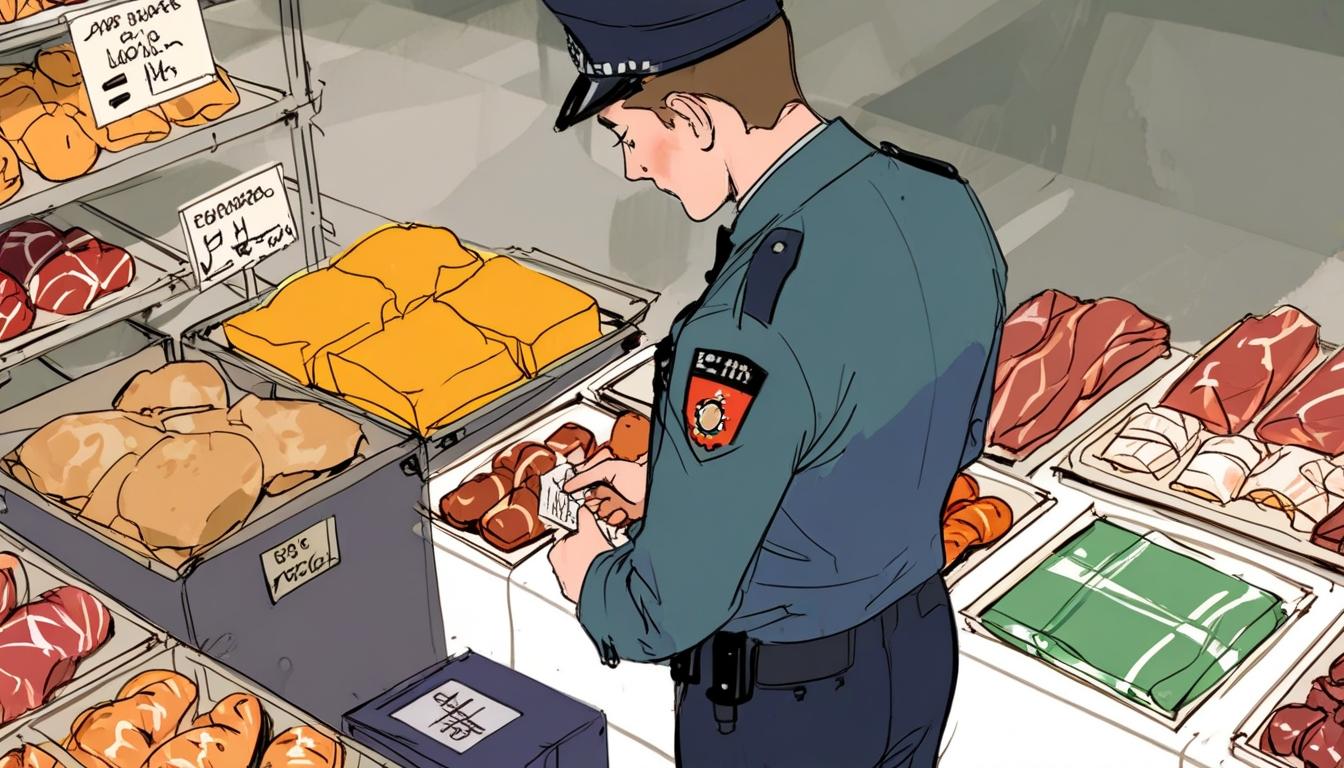Holidaymakers must take heed of newly introduced restrictions that could result in fines as steep as £5,000 for attempting to bring certain food items into the UK. Amid an outbreak of foot and mouth disease (FMD) across parts of Europe, travellers returning from popular destinations such as Spain, France, Italy, and Greece are required to avoid carrying prohibited items in their luggage, regardless of where or how these goods were purchased, including duty-free shops.
The UK government has outlined that items such as sandwiches, cheese, cured meats, raw meats, and milk are off-limits for personal importation into Great Britain from all EU countries. Individuals discovered with these items at border control face the choice of surrendering them or having them seized and destroyed. The penalties are part of broader efforts to shield British livestock from potential disease outbreaks that could arise from imported products.
FMD, which affects cattle, sheep, pigs, and other cloven-hoofed animals, poses a significant threat to the agricultural sector due to its highly contagious nature. Although the disease does not impact human health, its consequences can be devastating, leading to severe economic losses and restrictions on markets for farmers and livestock businesses. The government’s latest actions come as a response to a rising number of confirmed cases in various European countries, including Germany and Hungary. Earlier this year, the UK restricted the import of certain animal products from Germany, Slovakia, and Austria to safeguard its food security.
Farming Minister Daniel Zeichner expressed the government's commitment to protecting British farmers, stating, “This government will do whatever it takes to protect British farmers from foot and mouth.” He underscored that the newly implemented restrictions are a proactive measure to enforce biosecurity and preserve the integrity of the country’s livestock sector. In a similar vein, Dr Jorge Martin-Almagro, the UK Deputy Chief Veterinary Officer for international trade affairs, emphasised the need for strict vigilance and robust contingency plans to manage the risks posed by the disease. He urged all livestock keepers to maintain impeccable biosecurity standards and report any signs of disease immediately.
While the UK has implemented stringent border controls, there are limited exemptions in place. These include allowances for specific items such as infant milk, medical foods, and certain composite products like confectionery and baked goods, which do not pose a risk of FMD transmission.
Historically, foot and mouth disease has prompted drastic measures in the UK, most notably during the severe outbreak in 2001, which saw widespread restrictions on public access to rural areas and farms to control the spread of the disease. During that time, the National Farmers' Union encouraged the public to avoid all interactions with areas where livestock were present.
Moving forward, as travel regulations continue to evolve in response to health crises, holidaymakers should remain informed to avoid hefty fines and contribute to the ongoing efforts in safeguarding the agricultural landscape of the UK.
Reference Map
- Paragraph 1: [1]
- Paragraph 2: [1]
- Paragraph 3: [1], [2]
- Paragraph 4: [1], [7]
- Paragraph 5: [2]
- Paragraph 6: [2], [4]
- Paragraph 7: [1], [3]
- Paragraph 8: [6]
Source: Noah Wire Services
